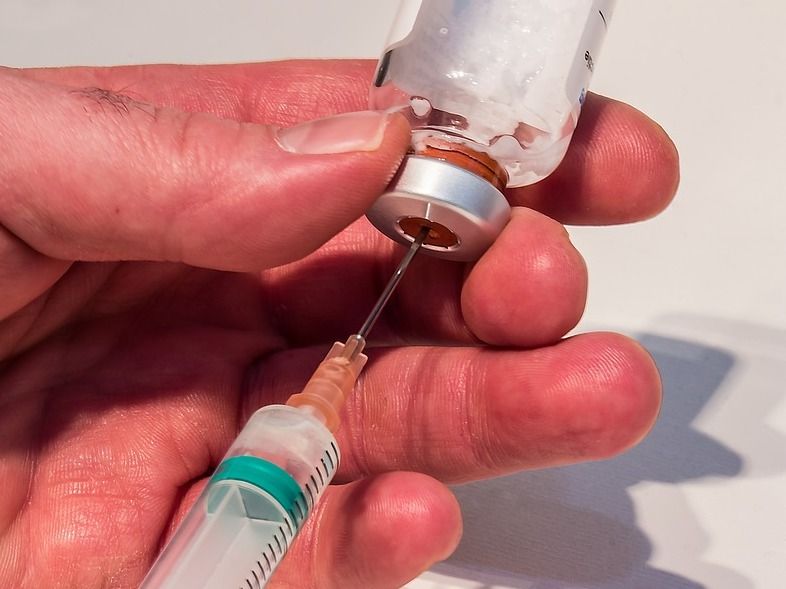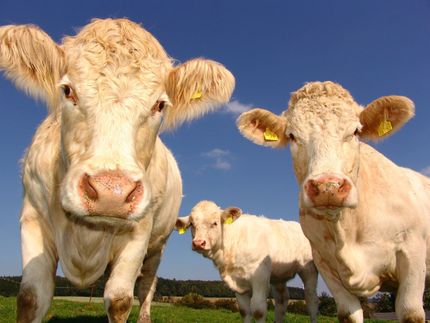Nature's defence mechanisms can reduce the use of antibiotics
Researchers at DTU have identified natural peptides that fight bacteria, thereby reducing the need for antibiotics.

Myriams-Fotos/ Pixabay
Antimicrobial resistance is one of the biggest threats to human health according to the World Health Organization, WHO. Researchers from National Food Institute, Technical University of Denmark, have worked for more than two decades to halt the development of resistant bacteria, e.g. by finding ways to combat disease-causing bacteria in food production without the use of antibiotics.
"We are looking for methods to fight infections in food producing animals without having to use antibiotics. It is important to limit or completely eliminate the use of antibiotics in animal production without compromising on animal welfare."Professor Egon Bech Hansen
Peptide combats three bacteria
A study from the National Food Institute shows that the naturally occurring peptide, Cap 18, can be used to combat bacteria in food producing animals, thereby reducing the need to treat sick animals with conventional antibiotics. Peptides consist of amino acids and are the building blocks of proteins.
Cap 18 is part of animals’ primitive immune system and occurs naturally in tears from rabbits.
The peptide can combat the three bacteria Salmonella typhimurium, Y. ruckeri and A. salmonicida. Salmonella is the foodborne bacteria, which causes the most disease outbreaks in Europe, while the two other bacteria cause red mouth disease and furunculosis in rainbow trout, which inflicts substantial economic losses on the aquaculture industry.
”We are looking for methods to fight infections in food producing animals without having to use antibiotics. It is important to limit or completely eliminate the use of antibiotics in animal production without compromising on animal welfare,” Professor Egon Bech Hansen from the National Food Institute explains.
More research on how to utilize proteins
Calculations from the National Food Institute show that commercial production of Cap 18 would be both financially viable and practically possible. However, before the peptide—or variants thereof—can be used as an ingredient in food or feed, a microorganism would have to be developed that could produce the peptide. The effect of ingesting such a product should also be further investigated.
The institute’s researchers are not planning to carry out further research into this particular peptide, but are working to identify other naturally occurring peptides and proteins in potatoes and seaweed for use as a preservative and as functional feed.
Read more
The study, which has been carried out in cooperation with researchers from the University of Copenhagen and Aalborg University, is described in further detail in a scientific article in the publication PLOS ONE: Dissection of the Antimicrobial and Hemolytic Activity of Cap18: Generation of Cap18 Derivatives with enhanced Specificity.
The work was done partly during a completed GUDP (Green Development and Demonstration Programme) project focusing on developing a livestock production without the use of antibiotics, and partly under the current Innovation Fund project PROVIDE.
On the National Food Institute’s special topic portal on antimicrobial resistance you can read more about antimicrobial resistance as well as the institute’s research aimed at increasing knowledge about resistant bacteria and to combat the development of resistance.
Other news from the department science
Most read news
More news from our other portals
See the theme worlds for related content
Topic world Food safety
Food safety is at the heart of the food and beverage industry. It ensures that the food we eat every day is not only nutritious, but also free of harmful contaminants. From field to plate, the industry monitors and regulates every step of the process with strict quality controls, advanced testing methods and continuous research.

Topic world Food safety
Food safety is at the heart of the food and beverage industry. It ensures that the food we eat every day is not only nutritious, but also free of harmful contaminants. From field to plate, the industry monitors and regulates every step of the process with strict quality controls, advanced testing methods and continuous research.































































